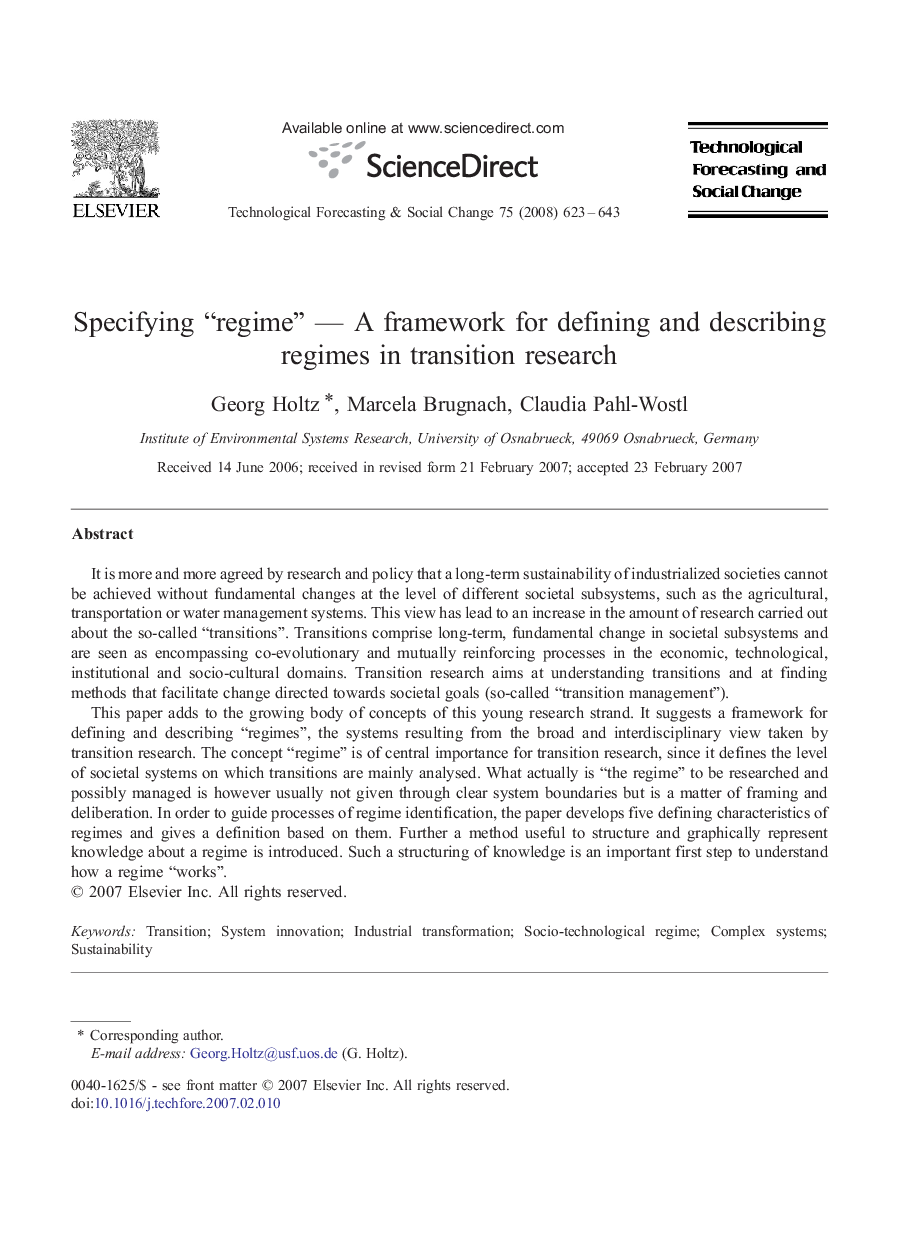| Article ID | Journal | Published Year | Pages | File Type |
|---|---|---|---|---|
| 897200 | Technological Forecasting and Social Change | 2008 | 21 Pages |
It is more and more agreed by research and policy that a long-term sustainability of industrialized societies cannot be achieved without fundamental changes at the level of different societal subsystems, such as the agricultural, transportation or water management systems. This view has lead to an increase in the amount of research carried out about the so-called “transitions”. Transitions comprise long-term, fundamental change in societal subsystems and are seen as encompassing co-evolutionary and mutually reinforcing processes in the economic, technological, institutional and socio-cultural domains. Transition research aims at understanding transitions and at finding methods that facilitate change directed towards societal goals (so-called “transition management”).This paper adds to the growing body of concepts of this young research strand. It suggests a framework for defining and describing “regimes”, the systems resulting from the broad and interdisciplinary view taken by transition research. The concept “regime” is of central importance for transition research, since it defines the level of societal systems on which transitions are mainly analysed. What actually is “the regime” to be researched and possibly managed is however usually not given through clear system boundaries but is a matter of framing and deliberation. In order to guide processes of regime identification, the paper develops five defining characteristics of regimes and gives a definition based on them. Further a method useful to structure and graphically represent knowledge about a regime is introduced. Such a structuring of knowledge is an important first step to understand how a regime “works”.
